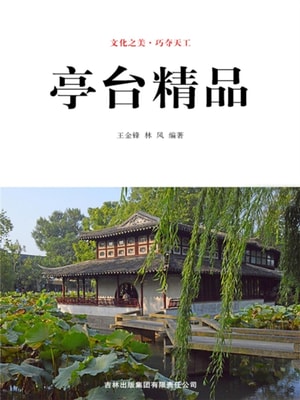General and world history
Sorting
Bestseller Sorting collapsed
Bestseller
Name: A-Z
Name: Z-A
Price ascending
Price descending
Publication Date ascending
Publication Date descending

E-book
Price
3.74 £ * Old Price 4.49 £
E-book
0
0
Price
3.74 £ * Old Price 4.49 £
内容简介:讲述了李宗仁先生在历经沧桑后,深明大义,毅然决定回归祖国的故事。书中介绍了李宗仁的生平经历、他在历史关键时刻的抉择以及回归祖国的曲折过程,体现了他对祖国的深厚情感和为国家统一所做出的积极贡献,也反映了当时国内外政治形势的复杂多变。作者简介:王治国对历史有着浓厚兴趣和深入研究的学者、作家。王治国在创作这些书籍时,想必进行了大量的资料收集和整理工作,通过生动的叙述和详细的描写,将共和国历史上的重要事件和发展历程呈现给读者,让人们能够更好地了解和铭记历史,从中汲取经验和力量。
Read more
E-book
Price
0
0.01 £
E-book
0
0
Price
0.01 £
内容简介:李姗姗的这本书展现了中国皇家园林的独特魅力。皇家园林是中国古代园林艺术的杰出代表,本书通过系统介绍,让读者了解其历史与艺术价值,感受皇家园林的宏伟壮丽和文化底蕴。本书介绍中国非凡的皇家园林,如颐和园、圆明园等,讲述这些园林的历史沿革、建筑风格、景观布局和文化内涵。剖析皇家园林在皇家休闲娱乐、政治外交、文化艺术等方面的功能,展现其建筑艺术的精湛和文化价值的深厚,领略非凡皇家园林的独特魅力。作者简介:李姗姗,专注于皇家园林文化研究的作者。
Read more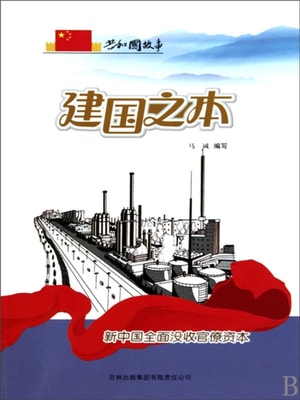
E-book
Price
3.74 £ * Old Price 4.49 £
E-book
0
0
Price
3.74 £ * Old Price 4.49 £
内容简介:本书是 "共和国故事" 系列丛书中的一本,主要聚焦于新中国成立初期全面没收官僚资本这一重大历史事件。它详细阐述了没收官僚资本的历史背景,包括官僚资本在旧中国的形成、发展及其对国家经济的严重垄断和破坏。书中具体描述了新中国采取的一系列没收官僚资本的政策、措施和行动过程作者简介:马诚是一位对新中国历史有深入研究和浓厚兴趣的学者或作者,他(她)能够熟练运用丰富的历史资料,以生动、详实的笔触将新中国全面没收官僚资本这一复杂的历史事件呈现给读者,使读者能够全面、客观地认识和理解这一重要历史阶段,为人们了解新中国初期的经济建设和社会变革提供了有价值的参考。
Read more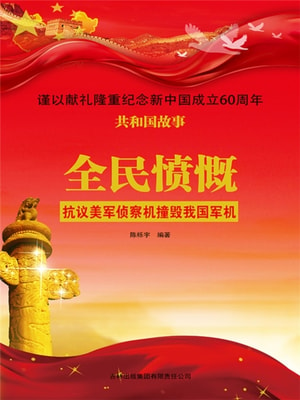
E-book
Price
3.74 £ * Old Price 4.49 £
E-book
0
0
Price
3.74 £ * Old Price 4.49 £
内容简介:《全民愤慨・抗议美军侦察机撞毁我国军机》:讲述了美军侦察机撞毁我国军机这一事件的经过和背景。描述了事件发生后全国人民的愤慨情绪,以及中国政府在外交上的严正立场和应对措施,体现了中国维护国家主权、尊严和领土完整的坚定决心,以及全国人民对国家和军队的支持与热爱。作者简介:陈栎宇在党史、新中国史等方面有一定研究和积累,从而能够承担起撰写 "共和国故事" 系列中相关分册的任务,为读者呈现出精彩的历史故事和深刻的历史内涵。
Read more
E-book
Price
0
0.01 £
E-book
0
0
Price
0.01 £
内容简介:《三千年来谁著史:先秦时期的权谋游戏》是冷成金教授历史解读系列丛书中最有影响力的一本。在这本解读先秦历史的著作中,冷成金教授以智论史、以史说智,通过一个个生动有趣的历史典故和人物故事,向今人阐释历史中的大智慧:最深刻的儒家智慧,从征服人心入手,谋圣而不谋智;最刻毒的法家智慧,以法、势、术为核心,用阴谋和强权控制民众;最圆融的道家智慧,通过"不争",以心智王天下;最超脱的佛家智慧,在面对在世与超世、做人与成佛、求佛与求己中选择追求内在本心……此外,还有最无耻的纵横家智慧、最冷峻的兵家智慧以及最神秘的阴阳家智慧。历史的治乱兴衰、人物的成败得失,深入浅出,淋漓展现。读此书,登堂简单,入室很难,需要深思、顿悟,方能看到作者打开的历史不为人知的另一面!作者简介:冷成金,中国人民大学中文系教授,博士生导师,中国苏轼研究会、李清照辛弃疾研究会理事、常务理事。主要从事中国古典文学和传统文化研究。曾先后出版《中国文学的历史与审美》《隐士与解脱》《苏轼的哲学观与文艺观》《辩经》《读史有学问》等知名专著,在文化界影响巨大。
Read more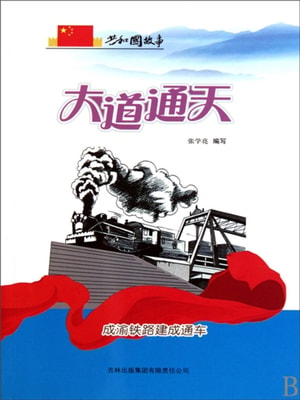
E-book
Price
3.74 £ * Old Price 4.49 £
E-book
0
0
Price
3.74 £ * Old Price 4.49 £
内容简介:《大道通天・成渝铁路建成通车》:介绍了成渝铁路从规划、设计到施工建设,最终建成通车的全过程。讲述了在当时的历史条件下,建设者们克服重重困难,修建这条铁路的艰辛历程,以及成渝铁路通车后对西南地区经济发展、社会进步所产生的深远影响。作者简介:张学亮对共和国历史上的诸多重大事件有着深入的研究和了解,能够以生动的笔触、详实的资料,将这些历史事件呈现在读者面前,让读者更好地了解共和国的发展历程,具有较强的历史研究和写作能力。他编写的《共和国故事》系列丛书,为普及共和国历史知识、传承红色文化做出了一定的贡献。
Read more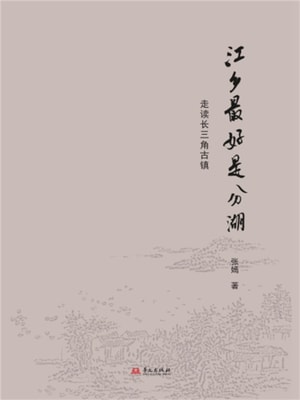
E-book
Price
3.74 £ * Old Price 4.49 £
E-book
0
0
Price
3.74 £ * Old Price 4.49 £
内容简介:长三角地区是我国经济发展最活跃、开放程度最高、创新能力最强的区域之一,在国家现代化建设大局和全方位开放格局中具有举足轻重的战略地位。江南文化,以独特的魅力,以意义非凡的过往,以开放、包容的方式打开在历史之中。嘉兴作为27座中心城市,在江南文化中有着重要的地位。古镇文化作为江南文化的证据和落脚点,我们重温它,记录下那些值得保留的东西,更是为了了解这片江南土地,只有建立在了解之上的钟情,才是真正的热爱,也才能更好地发挥它在新时期的典范作用。《江乡最好是分湖:走读长三角古镇》一书,以嘉兴为出发点,走读长三角区域内二十九个古镇,个别文章已经公开发表在《嘉兴日报》等报刊,全书20万字,配有多幅古镇图片。作者简介:张嫣是一位来自浙江海宁的作家,出生于 70 年代,现居嘉兴。她是嘉兴市作协会员、嘉兴市文艺评论家协会会员,也是 "周二有约" 读书会发起人、《分湖》编委之一。作为一名医务工作者,张嫣利用闲暇时间走读古镇,足迹遍布长三角区域。她的作品多见于《嘉兴日报》《分湖》等报刊。她的新书《江乡最好是分湖 —— 走读长三角古镇》入选 2022 年嘉兴市文化精品重点扶持项目,该书以嘉兴为出发点,记录了她行走长三角区域内近三十个古镇的感悟,展现了古镇的历史风貌、文化内涵和社会变迁。
Read more
E-book
Price
0
0.01 £
E-book
0
0
Price
0.01 £
内容简介:梁新宇的这本书展现了中国姓氏名号文化的独特魅力。姓氏名号是个人与家族的重要标识,本书通过系统介绍,让读者深入了解其文化内涵,感受姓氏文化在中华民族传统文化中的重要地位。作者简介:梁新宇对中国传统文化有着浓厚的兴趣和深入的研究。该系列丛书涵盖了茶道、端午龙舟、古代礼制、服装艺术等众多方面,系统地介绍了中国丰富多样的民风习俗,展现了中华文化的博大精深。梁新宇通过生动的文字和丰富的图片,将这些传统习俗的历史渊源、发展演变、文化内涵等内容深入浅出地呈现给读者,使读者能够更好地了解和传承中国优秀的传统文化。
Read more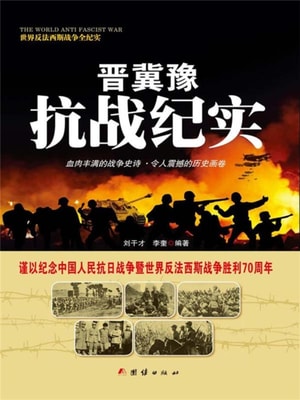

E-book
Price
0
6.99 £
E-book
0
0
Price
6.99 £
Retour sur l'annee politique et economique mondiale de 2021 avec ce Grand Article Universalis.
Read more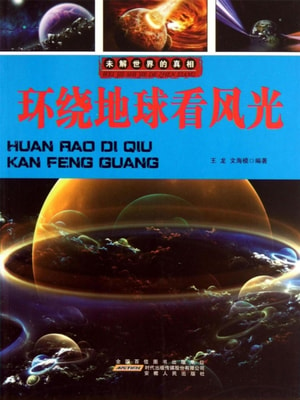
E-book
Price
3.74 £ * Old Price 4.49 £
E-book
0
0
Price
3.74 £ * Old Price 4.49 £
内容简介:王龙、文海模的 "未解世界的真相" 系列,聚焦自然、宇宙等领域的神秘现象。《大自然有多大》探讨自然尺度的奥秘;《环绕地球看风光》展现地球名胜背后的故事;《奇妙的科学世界》揭示科学领域的奇妙未知;《听花听草说什么》探索植物世界的秘密;《外太空去遨游》《宇宙到底有些啥》着眼宇宙,包含太空旅行、天体构成等内容;《迎接外星人造访》研究外星文明相关谜题。
Read more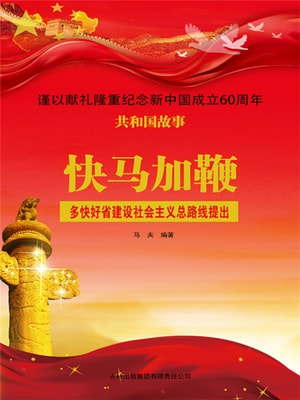
E-book
Price
3.74 £ * Old Price 4.49 £
E-book
0
0
Price
3.74 £ * Old Price 4.49 £
内容简介:《共和国故事:快马加鞭・多快好省建设社会主义总路线提出》:该书围绕多快好省建设社会主义总路线的提出展开。介绍了这一总路线提出的历史背景,包括当时中国面临的国内外形势、经济建设的需求以及人民群众迫切改变国家落后面貌的愿望等。同时,阐述了总路线在推动中国社会主义建设过程中的积极作用和影响作者简介:马夫是一位擅长创作军事历史类作品的作家。他著有《第二次世界大战实录》系列丛书,包括《欧战全面爆发》《罪恶的帮凶》《喋血英雄》《枭雄罪与罚》等多个分册。这些作品综合国内外的最新研究成果和最新解密资料,在有关专家和部门的指导下,以第二次世界大战的历史进程为线索,贯穿了大战的主要历史时期、主要战场战役和主要军政人物,全景式展现了第二次世界大战的恢宏画卷。其作品时空纵横,气势磅礴,具有历史性、资料性、权威性和真实性,史实详尽,图文并茂,有较高的阅读和收藏价值。
Read more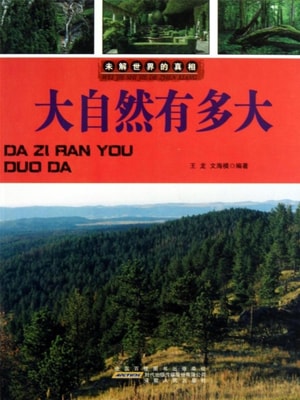
E-book
Price
3.74 £ * Old Price 4.49 £
E-book
0
0
Price
3.74 £ * Old Price 4.49 £
内容简介:王龙、文海模的 "未解世界的真相" 系列,聚焦自然、宇宙等领域的神秘现象。《大自然有多大》探讨自然尺度的奥秘;《环绕地球看风光》展现地球名胜背后的故事;《奇妙的科学世界》揭示科学领域的奇妙未知;《听花听草说什么》探索植物世界的秘密;《外太空去遨游》《宇宙到底有些啥》着眼宇宙,包含太空旅行、天体构成等内容;《迎接外星人造访》研究外星文明相关谜题。
Read more
E-book
Price
0
109.50 £
E-book
0
0
Price
109.50 £
African Americans have long been the backbone of the Democratic Party.
Read more
E-book
Price
0
0.01 £
E-book
0
0
Price
0.01 £
内容简介:李姗姗所著此书是探寻远古文明的指引。远古遗迹是人类历史的珍贵宝藏,本书通过对相关名胜古迹的介绍,让读者深入了解远古先祖的世界,揭开早期人类文明的神秘面纱,为研究远古历史提供生动素材。作者简介:李姗姗,专注于历史文四川广元人,1999 年开始儿童文学创作,2017 年加入中国作家协会,是 "重庆文学院第七届巴蜀青年文学奖" 获奖者化古迹研究与创作的作者。她的作品风格多样,充满童真与想象力,常常以温暖的故事和生动的形象,展现儿童的成长与探索,探讨生命、友情、亲情等主题,引导小读者树立正确的价值观和人生观。例如在《面包男孩》中,通过小精灵 "小面包" 与罗德叔共同成长的经历,展现了一个充满爱与温暖的童真世界。
Read more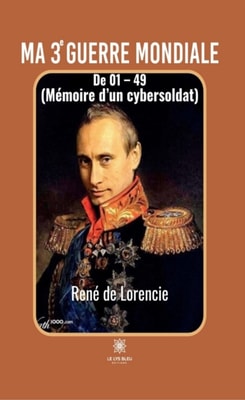
E-book
Price
0
16.99 £
E-book
0
0
Price
16.99 £
La question de l'independance d'une enclave regionale envers son empire national ne se resout que par le choix du regime autoritaire et a condition qu'il exclut le "e;genocide moral"e;.
Read more
E-book
Price
0
109.50 £
E-book
0
0
Price
109.50 £
African Americans have long been the backbone of the Democratic Party.
Read more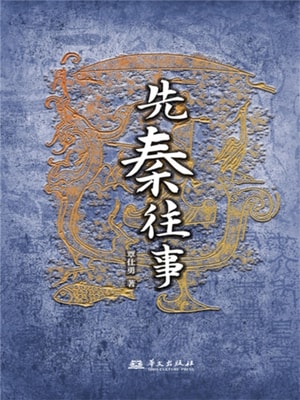
E-book
Price
3.74 £ * Old Price 4.49 £
E-book
0
0
Price
3.74 £ * Old Price 4.49 £
内容简介:中华有五千年灿烂文明。但是,这五千年的文明历史中,秦汉而下的两千多年的发展过程更为人们所熟知,而秦朝以前,也就是我们常说的"先秦"历史,人们了解的相对少一些。广义上的"先秦"包含了传疑半信史和信史三个时代,史料荒芜,难得全貌,后世大众在了解先秦历史上,常常不得要领,无所适从。本书从考古和史料辨析两方面入手,将一个比较接近历史原貌的先秦历史画卷呈现到读者面前,以弘扬中华灿烂文化为主旨,以别开生面的笔触来写史,让读者在愉悦中收获知识,从而增强中华民族自信心。作者简介:覃仕勇是广西博白人,是一位通俗历史作家,也是广西作家协会会员。他运营着自媒体账号 "覃仕勇说史""覃仕勇讲史"。覃仕勇擅长撰写简史、通史以及各种历史人物传记。他的作品丰富,已出版《历史里的隋唐英雄们》《大唐王朝惹了谁》《两宋时代的牛人》《这才是岳飞》《大东汉》《奏折上的晚明》《功夫皇帝:赵匡胤》《一代名相狄仁杰》《隐忍与抗争》《明灭》《谋士纵横》《天朝梦碎》《中国史速读・皇权相权》以及《熬通宵也要读完的王朝史》系列(共十册)等多种文史作品。2024 年,他出版了《先秦往事》,该书从考古和史料辨析两方面入手,将较为接近历史原貌的先秦历史画卷呈现给读者。
Read more
E-book
Price
3.74 £ * Old Price 4.49 £
E-book
0
0
Price
3.74 £ * Old Price 4.49 £
内容简介:《共和国故事:农业动力・第一拖拉机厂建成与东方红拖拉机下线》:介绍了第一拖拉机厂的建设背景、过程以及东方红拖拉机下线的重要意义。讲述了该厂在新中国农业机械化进程中所发挥的重要作用,如何为农业生产提供强大动力,推动了中国农业的现代化发展。作者简介:于杰:是《共和国故事》部分书籍的作者,同时还著有《共同富裕 - 华西村的富民政策与发展》等。在《共和国故事》中,他的作品涵盖了多个领域的历史事件,如《滨海明珠・天津滨海新区开工建设》《打破天荒・建立海南经济特区与洋浦风波》等,从不同角度反映了共和国在经济建设、特区发展等方面的探索与成就。
Read more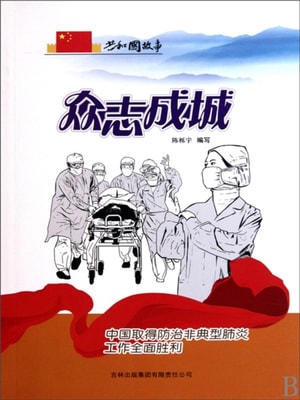
E-book
Price
3.74 £ * Old Price 4.49 £
E-book
0
0
Price
3.74 £ * Old Price 4.49 £
内容简介:《众志成城・中国取得防治非典型肺炎工作全面胜利》:以防治非典型肺炎这一重大公共卫生事件为主题,描述了非典疫情在中国的爆发情况、传播态势以及给社会带来的巨大挑战。同时展现了中国政府、医护人员、科研工作者和全体民众在抗击非典过程中的团结协作、英勇奋战,以及采取的一系列有效防控措施作者简介:陈栎宇在党史、新中国史等方面有一定研究和积累,从而能够承担起撰写 "共和国故事" 系列中相关分册的任务,为读者呈现出精彩的历史故事和深刻的历史内涵。
Read more
E-book
Price
0
0.01 £
E-book
0
0
Price
0.01 £
内容简介:李姗姗所著此书是解读长城文化的佳作。长城是中华民族的象征,本书通过详细介绍,让读者领略长城的雄伟气势和丰富历史,感受中华民族坚韧不拔的精神和深厚的文化底蕴。作者简介:李姗姗,专注于历史文四川广元人,1999 年开始儿童文学创作,2015 年加入中国作家协会,是 "重庆文学院第七届巴蜀青年文学奖" 获奖者化古迹研究与创作的作者。她的作品风格多样,充满童真与想象力,常常以温暖的故事和生动的形象,展现儿童的成长与探索,探讨生命、友情、亲情等主题,引导小读者树立正确的价值观和人生观。例如在《面包男孩》中,通过小精灵 "小面包" 与罗德叔共同成长的经历,展现了一个充满爱与温暖的童真世界。
Read more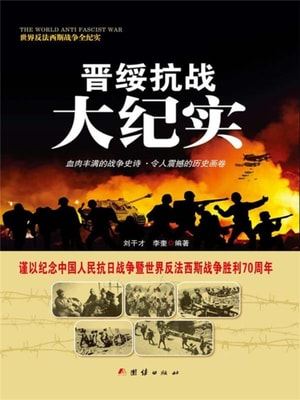
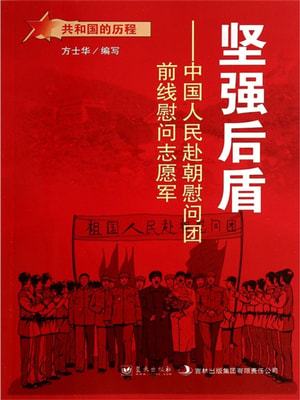
E-book
Price
3.74 £ * Old Price 4.49 £
E-book
0
0
Price
3.74 £ * Old Price 4.49 £
内容简介:本书聚焦于抗美援朝战争中一个重要且残酷的方面,即美军对中朝被俘人员的无理扣留和残害。详细描述了美军违反国际公约和基本人道原则的种种罪行,包括在战俘营中对战俘进行虐待、强制 "甄别"、强迫战俘改变政治立场等行为,揭示了美国在战争中不光彩的一面,以及中朝战俘所遭受的苦难作者简介:方士华出生于 1967 年 8 月,西南师范学院研究生毕业,现为四川省绵阳市中学教师,业余从事自由撰稿工作。编辑出版作品有《梦想的积极心态》《培养孩子的生存能力》《高智商的孩子是教出来》《不打不骂就让孩子听》等。
Read more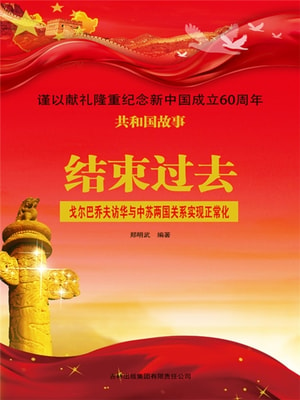
E-book
Price
3.74 £ * Old Price 4.49 £
E-book
0
0
Price
3.74 £ * Old Price 4.49 £
内容简介:《共和国故事:结束过去・戈尔巴乔夫访华与中苏两国关系实现正常化》:详细介绍了戈尔巴乔夫访华的背景、过程以及对中苏两国关系正常化的重要意义。书中展现了两国在历经多年波折后,通过高层会晤实现关系缓和与正常化的历史进程,对研究中苏关系演变具有重要价值。作者简介:郑明武是一位安徽利辛的新锐青年作家,笔名郑丹石,主要关注中国近现代政治、军事史,著作颇丰。其作品以幽默、流畅的语言风格,独特、深邃的见解引发关注。除了 "共和国故事" 系列,还著有《捍卫蒋介石的敢死卫队》《葬送在蒋介石手下的特种部队》《共和国铁拳内卫》等作品。
Read more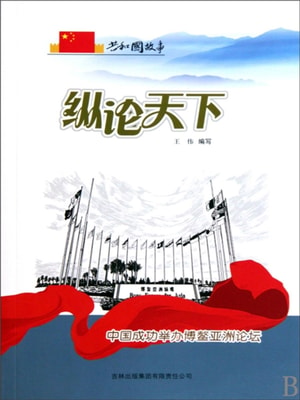
E-book
Price
3.74 £ * Old Price 4.49 £
E-book
0
0
Price
3.74 £ * Old Price 4.49 £
内容简介:《共和国故事:纵论天下・中国成功举办博鳌亚洲论坛》:详细介绍了博鳌亚洲论坛的创办背景、中国举办该论坛的筹备过程以及论坛举办所产生的广泛影响,体现了中国在国际舞台上积极参与和推动区域合作,为亚洲和世界经济发展贡献智慧和力量的重要作用。作者简介:王伟通过《共和国故事》系列丛书,以丰富的史料、生动的笔触,将共和国发展历程中的众多重大事件进行了系统梳理和详细呈现,让读者能够深入了解共和国在各个领域的发展脉络和取得的辉煌成就。
Read more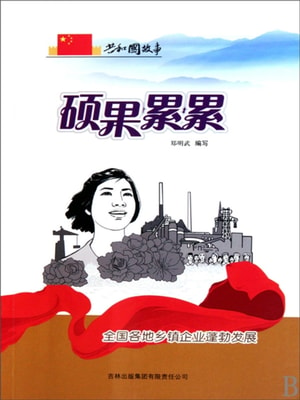
E-book
Price
3.74 £ * Old Price 4.49 £
E-book
0
0
Price
3.74 £ * Old Price 4.49 £
内容简介:《共和国故事:硕果累累・全国各地乡镇企业蓬勃发展》:记述了全国各地乡镇企业蓬勃发展的历程,包括乡镇企业兴起的背景、政策支持、发展模式以及在推动农村经济发展、增加农民收入、促进城乡一体化等方面所取得的显著成就,展现了乡镇企业在中国经济发展中的重要地位和作用。作者简介:郑明武是一位安徽利辛的新锐青年作家,笔名郑丹石,主要关注中国近现代政治、军事史,著作颇丰。其作品以幽默、流畅的语言风格,独特、深邃的见解引发关注。除了 "共和国故事" 系列,还著有《捍卫蒋介石的敢死卫队》《葬送在蒋介石手下的特种部队》《共和国铁拳内卫》等作品。
Read more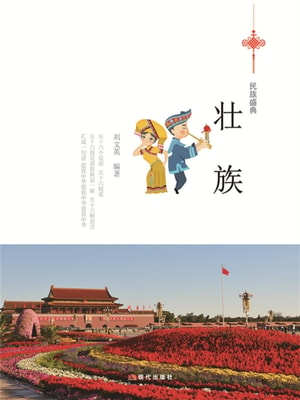
E-book
Price
3.74 £ * Old Price 4.49 £
E-book
0
0
Price
3.74 £ * Old Price 4.49 £
内容简介:党的十八大报告指出:"文化是民族的血脉,是人民的精神家园。全面建成小康社会,实现中华民族伟大复兴,必须推动社会主义文化大发展大繁荣,兴起社会主义文化建设新高潮,提高国家文化软实力,发挥文化引领风尚、教育人民、服务社会、推动发展的作用。"作者简介:刘文英是一位在出版领域和文化研究方面有一定成就的学者。他长期致力于文化传播和出版事业,在相关领域有着深厚的学术积累和丰富的实践经验。他主编的《民族盛典》等书籍,通过对民族文化的系统整理和介绍,为弘扬中华民族文化、促进各民族文化交流和团结做出了积极贡献。
Read more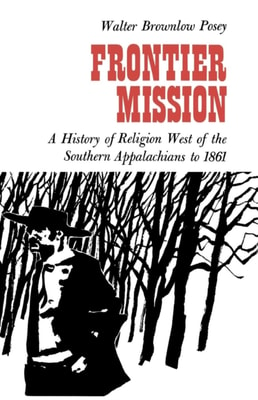
E-book
Price
0
40.50 £
E-book
0
0
Price
40.50 £
Religion is viewed here as the great cultural force which introduced and preserved civilization in the era of westward expansion from 1776 to the eve of the Civil War.
Read more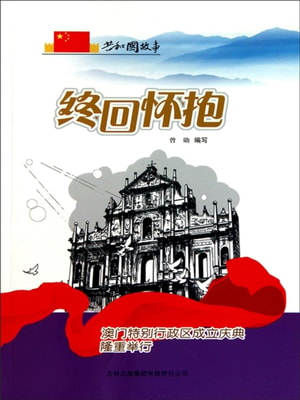
E-book
Price
3.74 £ * Old Price 4.49 £
E-book
0
0
Price
3.74 £ * Old Price 4.49 £
内容简介:《终回怀抱・澳门特别行政区成立庆典隆重举行》:以澳门回归和澳门特别行政区成立庆典为主题,描述了澳门回归的历史背景、回归过程以及庆典的盛大场面。展现了中国对澳门恢复行使主权的重要意义,标志着中国在完成祖国统一大业的道路上又迈出了重要一步,同时也体现了 "一国两制" 方针在澳门的成功实践。作者简介:曾勋是一位职业作家,1986 年生于四川内江,毕业于中国矿业大学中文系。16 岁开始发表文章,著有《紫土笔记》《思想是我的盐》《孔庆东现象批判》等作品,还与三农学者爱新觉罗・蔚然合著《另一个世界:不能忘却的苦难札记》,曾获《文学报▪新批评》优秀评论新人奖。
Read more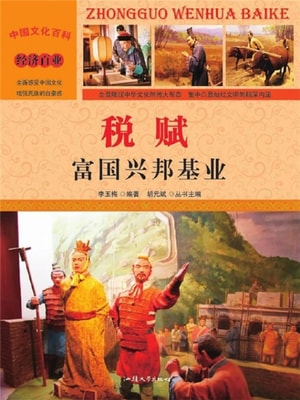
E-book
Price
3.74 £ * Old Price 4.49 £
E-book
0
0
Price
3.74 £ * Old Price 4.49 £
内容简介:《中国文化百科经济百业・税赋:富国兴邦基业》是 "中国文化百科经济百业" 丛书中的一本,由李玉梅、胡元斌编著,2015 年由汕头大学出版社出版。该书以中国税赋发展为线索,系统介绍了中国从古代到近代的税赋制度演变。书中内容丰富,涵盖了夏商西周的税赋、春秋时期的税制、战国时期的税制、秦代完整的税赋制度、汉代体系化税赋制度等多个历史时期的税赋情况。通过对不同历史时期税赋制度的详细阐述,展现了税赋在中国历史发展进程中的重要作用,以及其对国家经济、政治、社会等方面的深远影响,让读者了解到税赋如何成为富国兴邦的基业,是一本具有较强系统性、广博性,能全面展现中国税赋文化的读物。作者简介:李玉梅编著了多本 "中国文化百科经济百业" 系列丛书,如《工业:印纺工业龙头》《职业:百业兴旺景象》《种植:作物栽培耕种》《交通:纵横天地通达》《养殖:畜牧渔业并举》等。这些作品涵盖了经济百业的多个方面,以丰富的内容、系统的编排,展示了各个行业在中国文化背景下的发展历程和特点,具有较强的系统性、广博性,体现出作者深厚的知识积累和对相关领域的深入研究。
Read more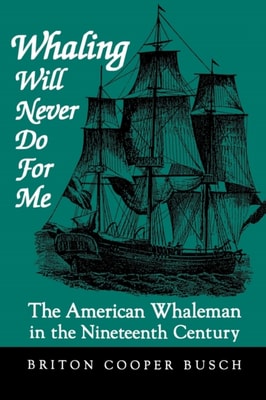
E-book
Price
0
31.50 £
E-book
0
0
Price
31.50 £
"e;I just begin to find out that whaling will never do for me and have determined to leave the ship here if possible.
Read more
E-book
Price
0
0.01 £
E-book
0
0
Price
0.01 £
内容简介:梁新宇所著此书是了解元宵民俗文化的佳作。元宵节是中国重要的传统节日,张灯习俗是其特色之一,本书通过对该习俗的介绍,让读者深入了解元宵节的文化内涵,感受传统节日的欢乐氛围和文化魅力。作者简介:梁新宇对中国传统文化有着浓厚的兴趣和深入的研究。该系列丛书涵盖了茶道、端午龙舟、古代礼制、服装艺术等众多方面,系统地介绍了中国丰富多样的民风习俗,展现了中华文化的博大精深。梁新宇通过生动的文字和丰富的图片,将这些传统习俗的历史渊源、发展演变、文化内涵等内容深入浅出地呈现给读者,使读者能够更好地了解和传承中国优秀的传统文化。
Read more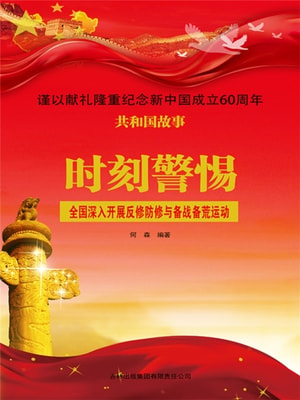
E-book
Price
3.74 £ * Old Price 4.49 £
E-book
0
0
Price
3.74 £ * Old Price 4.49 £
内容简介:《共和国故事:时刻警惕・全国深入开展反修防修与备战备荒运动》:阐述了全国开展反修防修与备战备荒运动的历史背景、运动的主要内容和具体措施,以及运动对当时中国的政治、经济、社会等方面产生的广泛影响,反映了当时复杂的国际形势下中国的应对策略和全民的精神状态。作者简介:何森是一位陕西韩城人,做过编辑、记者,曾在北京大学讲授国学及历史。他是近年来比较有市场影响力的历史书作家。其主要著述有《走出森林的人类 —— 人类为什么如此痛苦》。在 2011 年,何森编写了《共和国故事》丛书中的多本图书,该丛书是一套反映共和国 60 年伟大建设实践的大型历史故事丛书,从多个视角、多个侧面解读了在中国共产党领导下中国社会主义建设取得的伟大成就。
Read more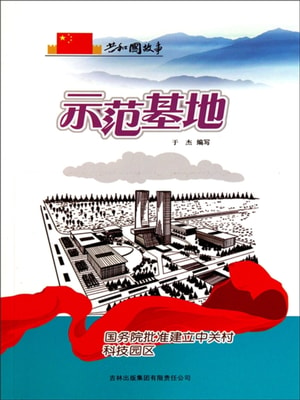
E-book
Price
3.74 £ * Old Price 4.49 £
E-book
0
0
Price
3.74 £ * Old Price 4.49 £
内容简介:《共和国故事:示范基地・国务院批准建立中关村科技园区》:记述了国务院批准建立中关村科技园区的过程,以及园区在科技创新、企业孵化、人才培养等方面所发挥的示范作用。展现了中关村如何从一个科技产业聚集地发展成为具有国际影响力的科技创新中心,推动了中国高新技术产业的发展。作者简介:于杰:是《共和国故事》部分书籍的作者,同时还著有《共同富裕 - 华西村的富民政策与发展》等。在《共和国故事》中,他的作品涵盖了多个领域的历史事件,如《滨海明珠・天津滨海新区开工建设》《打破天荒・建立海南经济特区与洋浦风波》等,从不同角度反映了共和国在经济建设、特区发展等方面的探索与成就。
Read more
E-book
Price
3.74 £ * Old Price 4.49 £
E-book
0
0
Price
3.74 £ * Old Price 4.49 £
内容简介:本套丛书共四册,客观地记录了人类历史上的军事活动,对军事历史上的重要的或具有里程碑意义的战争、战役、将帅、武器,当时的政治格局、兵力部署、攻防态势都有详细的展示,以使读者对该军事事件的大概情形有更为直观的了解。作者简介:周成龙对军事领域有着浓厚的兴趣和深入的研究,具备丰富的军事知识储备,能够将复杂的军事知识以系统、清晰的方式呈现给读者,使读者在阅读中了解到军事历史的发展脉络、战争背后的谋略以及武器装备的演进等多方面内容。
Read more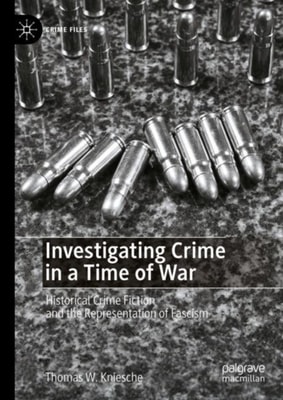
E-book
Price
0
109.50 £
E-book
0
0
Price
109.50 £
This book takes a close look at crime fiction set in the interwar period and during the reign of terror of the Nazi regime.
Read more
E-book
Price
0
109.50 £
E-book
0
0
Price
109.50 £
This book takes a close look at crime fiction set in the interwar period and during the reign of terror of the Nazi regime.
Read more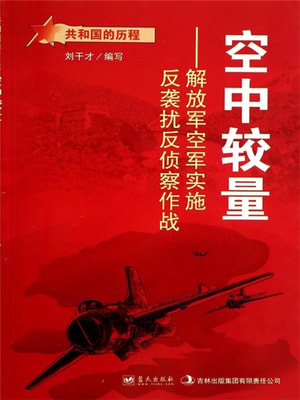
E-book
Price
3.74 £ * Old Price 4.49 £
E-book
0
0
Price
3.74 £ * Old Price 4.49 £
内容简介:《空中较量・解放军空军实施反袭扰反侦察作战》:着重介绍了解放军空军在面对敌人空中袭扰和侦察时的应对作战。讲述了空军部队如何组建、训练,以及在实战中与敌机进行空中较量,保卫国家领空安全的故事,展现了空军在早期发展阶段的战斗风貌。作者简介:刘干才是一位致力于历史题材创作的作家。他长期从事历史研究和文学创作,对中国近现代历史,尤其是共和国成立前后的历史有着深入的研究和浓厚的兴趣。他通过撰写 "共和国故事" 系列丛书等作品,以生动的文字和丰富的史料,将那些重要的历史事件和英雄事迹呈现给读者,让人们更好地了解共和国的成长历程和光辉岁月。
Read more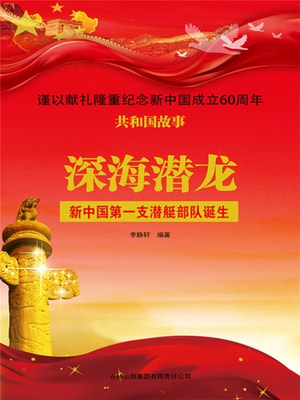
E-book
Price
3.74 £ * Old Price 4.49 £
E-book
0
0
Price
3.74 £ * Old Price 4.49 £
内容简介:《共和国故事:深海潜龙・新中国第一支潜艇部队诞生》:介绍了新中国第一支潜艇部队的组建背景、训练情况以及在国防建设中的重要作用,展现了中国海军在潜艇领域的发展和进步。作者简介:李静轩对共和国历史有着深入研究和了解,擅长以故事的形式讲述重大历史事件,使读者能够更加生动、形象地了解共和国的发展历程。这些书籍涵盖了政治、外交、体育、军事等多个领域,为读者呈现了一幅丰富多彩的共和国历史画卷。
Read more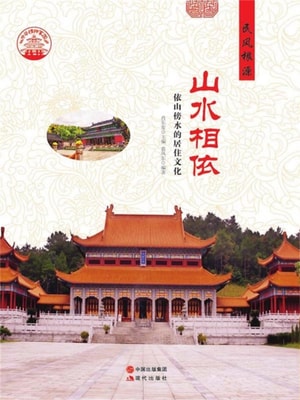
E-book
Price
3.74 £ * Old Price 4.49 £
E-book
0
0
Price
3.74 £ * Old Price 4.49 £
内容简介:该书是一套大型书系中的一本,书系旨在全景展现中国文化,内容采取讲故事的方式叙述,语言通俗,明白晓畅,图文并茂,形象直观,古风古韵,格调高雅,具有很强的可读性、欣赏性、知识性和延伸性。通过介绍古蕴深厚的千秋建筑、巧夺天工的吉建杰作等多方面内容,充分显示了中华民族厚重的文化底蕴和强大的民族凝聚力。作者简介:袁凤东是一位作家,编著过多部具有教育意义和文化价值的书籍。他编写了《共和国故事》系列丛书,如《加快步伐:中国进一步开放十四个沿海港口城市》《再次突破:国家新划一百四十个市县为沿海开放区》《重振雄风:振兴东北老工业基地计划启动》《互动发展:促进中部地区崛起战略正式实施》《西部崛起:西部大开发战略正式实施》等。
Read more
E-book
Price
3.74 £ * Old Price 4.49 £
E-book
0
0
Price
3.74 £ * Old Price 4.49 £
内容简介:《共和国故事:礼仪之师・中国人民解放军三军仪仗队成立》:阐述了三军仪仗队的成立背景、发展历程以及在国内外重大场合执行任务的情况,体现了其作为国家礼仪之师的重要地位和象征意义。作者简介:李静轩对共和国历史有着深入研究和了解,擅长以故事的形式讲述重大历史事件,使读者能够更加生动、形象地了解共和国的发展历程。这些书籍涵盖了政治、外交、体育、军事等多个领域,为读者呈现了一幅丰富多彩的共和国历史画卷。
Read more
E-book
Price
0
0.01 £
E-book
0
0
Price
0.01 £
内容简介:李姗姗的这本书展现了中国古桥建筑的独特魅力。古桥是中国古代建筑的重要组成部分,本书通过对其多方面的介绍,让读者领略古桥的建筑之美和历史价值,感受古代桥梁建筑技艺的精湛。作者简介:李姗姗,专注于历史文四川广元人,1999 年开始儿童文学创作,2009 年加入中国作家协会,是 "重庆文学院第七届巴蜀青年文学奖" 获奖者化古迹研究与创作的作者。她的作品风格多样,充满童真与想象力,常常以温暖的故事和生动的形象,展现儿童的成长与探索,探讨生命、友情、亲情等主题,引导小读者树立正确的价值观和人生观。例如在《面包男孩》中,通过小精灵 "小面包" 与罗德叔共同成长的经历,展现了一个充满爱与温暖的童真世界。
Read more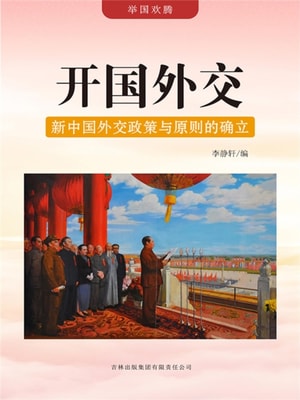
E-book
Price
3.74 £ * Old Price 4.49 £
E-book
0
0
Price
3.74 £ * Old Price 4.49 £
内容简介:《共和国故事》是一部反映共和国60年伟大建设实践的大型历史故事丛书,它从多个视角,多个侧面来解读半个多世纪以来在中国共产党领导下中国在社会主义建设中所取得的伟大成就。全套丛书内容涵盖广泛,涉及政治、经济、思想文化、社会、军事、科技、教育、政策、外交、民生等方面。作者简介:李静轩参与编写了其中多册,该系列丛书是一部反映共和国 60 年伟大建设实践的大型历史故事丛书,涵盖政治、经济、思想文化、社会、军事、科技、教育、政策、外交、民生等方面,李静轩通过对不同历史事件的梳理与编写,为读者呈现了共和国发展的全影和脉络。
Read more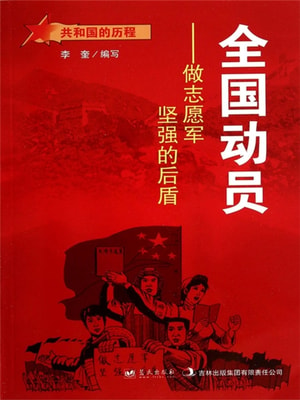
E-book
Price
3.74 £ * Old Price 4.49 £
E-book
0
0
Price
3.74 £ * Old Price 4.49 £
内容简介:本书主要讲述了抗美援朝战争时期,全国人民团结一致、积极动员起来,成为志愿军坚强后盾的历史过程。书中描绘了当时全国上下高涨的爱国热情,如广大青年踊跃参军,铁路工人、汽车司机、民工和医务工作者志愿到前线担负战地勤务工作等。同时展现了各行各业为抗美援朝所付出的努力作者简介:李奎是一位对新中国历史,尤其是上述涉及的历史事件有浓厚兴趣和深入了解的作者,能够通过自己的创作,将这些重要历史事件较为全面地呈现给读者,让人们更好地了解历史的全貌、背景、过程和意义,展现历史背后的精神力量和经验教训。
Read more
E-book
Price
0
0.01 £
E-book
0
0
Price
0.01 £
内容简介:梁新宇的这本书展现了中国龙凤图腾文化的独特魅力。龙凤图腾是中华民族的重要文化符号,本书通过系统介绍,让读者领略龙凤图腾的历史渊源和文化价值,感受其在民俗文化中的深远影响。作者简介:梁新宇对中国传统文化有着浓厚的兴趣和深入的研究。该系列丛书涵盖了茶道、端午龙舟、古代礼制、服装艺术等众多方面,系统地介绍了中国丰富多样的民风习俗,展现了中华文化的博大精深。梁新宇通过生动的文字和丰富的图片,将这些传统习俗的历史渊源、发展演变、文化内涵等内容深入浅出地呈现给读者,使读者能够更好地了解和传承中国优秀的传统文化。
Read more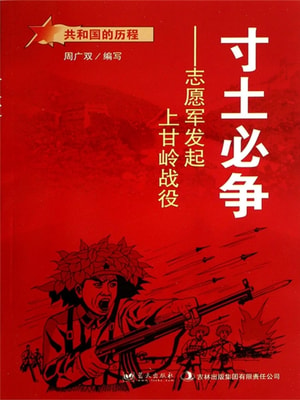
E-book
Price
3.74 £ * Old Price 4.49 £
E-book
0
0
Price
3.74 £ * Old Price 4.49 £
内容简介:《寸土必争・志愿军发起上甘岭战役》:详细记述了上甘岭战役的背景、过程和意义。书中展现了志愿军战士在极端恶劣的条件下,凭借顽强的意志和卓越的战术,与敌人进行激烈战斗,寸土不让,最终取得战役胜利的英勇事迹,凸显了志愿军的钢铁意志和伟大的抗美援朝精神。作者简介:周广双在写作上展现出了较强的能力,其作品情节跌宕起伏、扣人心弦,情节与文笔俱佳。在《共和国故事》系列中,他以丰富的史料、生动的叙述,展现了新中国成立以来的众多重大历史事件,如志愿军的战役、毛主席纪念堂建设等,让读者能够深入了解这段历史。
Read more
E-book
Price
3.74 £ * Old Price 4.49 £
E-book
0
0
Price
3.74 £ * Old Price 4.49 £
内容简介:《合肥统战纪事》坚持马克思主义唯物史观和正确党史观,以习近平新时代中国特色社会主义思想为指导,对合肥市统一战线工作的历史进程进行全面梳理和实事求是的记述。全书采用章、节、目的框架结构。全书共分四章,依据中国共产党百年奋斗历程的四个重要时期划分,即新民主主义时期、社会主义革命和建设时期、改革开放和社会主义现代化建设新时期、中国特色社会主义新时代;章节内容基本按时序安排,主要记述不同时期合肥地区统一战线的重要工作、重要事件及其影响,同时对党史中的一些背景资料作了适当铺垫,力求做到史论结合,以史为主,论从史出。作者简介:中共合肥市委统战部是市委主管统一战线工作的职能部门。以下是其详细介绍:主要职责组织贯彻执行党的统战工作方针政策,开展统一战线理论、政策调查研究,向市委反映全市统一战线情况,提出开展统战工作的意见和建议,监督、检查统战政策执行情况,协调统一战线各方面的关系。
Read more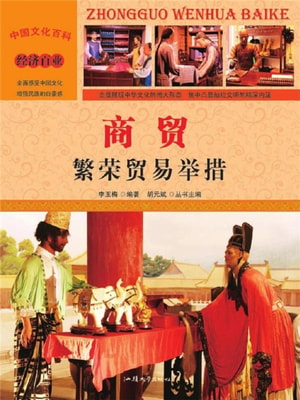
E-book
Price
3.74 £ * Old Price 4.49 £
E-book
0
0
Price
3.74 £ * Old Price 4.49 £
内容简介:该书主要介绍了中国历代的商业与市场经济,内容包括被尊为商圣的范蠡、儒商之鼻祖子贡、商人政治家吕不韦等古代著名商人;秦汉时期的商业活动与市场管理、魏晋南北朝的贸易往来、隋代对外贸易的发展、唐代繁荣的对外贸易等不同时期的商业发展状况;五代十国的商贸特点。作者简介:李玉梅是一位创作领域较为广泛的作者。除了本书外,她还著有《货币:绝代通宝古币》《金融:丰富金融形态》《养殖:畜牧渔业并举》《税赋:富国兴邦基业》等图书,涵盖经济、文化、农业等多个领域。从这些作品可以看出,李玉梅对中国文化和相关行业知识有一定的研究和积累,能够通过文字生动地呈现相关内容,以彩图版的形式,从中华文化的角度出发,展现中国在各个领域的发展历程和丰富内涵。
Read more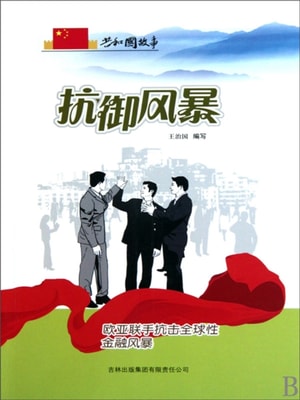
E-book
Price
3.74 £ * Old Price 4.49 £
E-book
0
0
Price
3.74 £ * Old Price 4.49 £
内容简介:主要聚焦于全球性金融风暴下,中国与欧亚各国携手合作应对危机的过程。书中分析了金融风暴的起因、传播路径以及对全球经济的严重冲击,详细描述了各国采取的应对措施以及相互之间的协作,展现了在经济全球化背景下,国际社会共同抵御风险、维护经济稳定的决心和行动。作者简介:王治国对历史有着浓厚兴趣和深入研究的学者、作家。王治国在创作这些书籍时,想必进行了大量的资料收集和整理工作,通过生动的叙述和详细的描写,将共和国历史上的重要事件和发展历程呈现给读者,让人们能够更好地了解和铭记历史,从中汲取经验和力量。
Read more